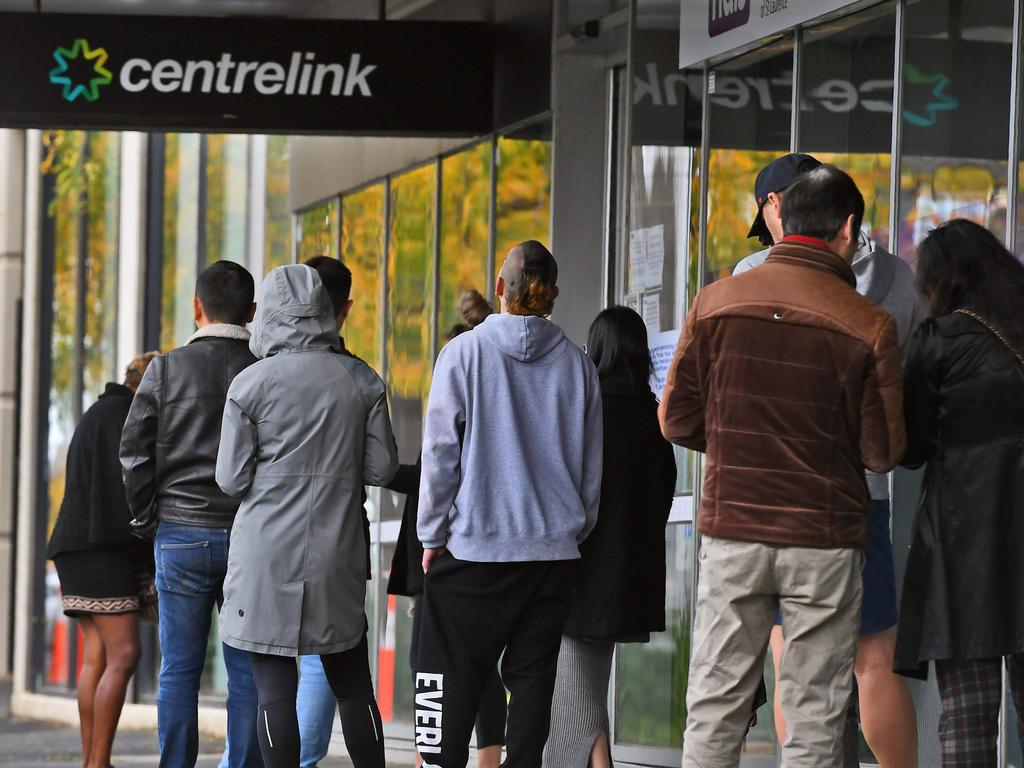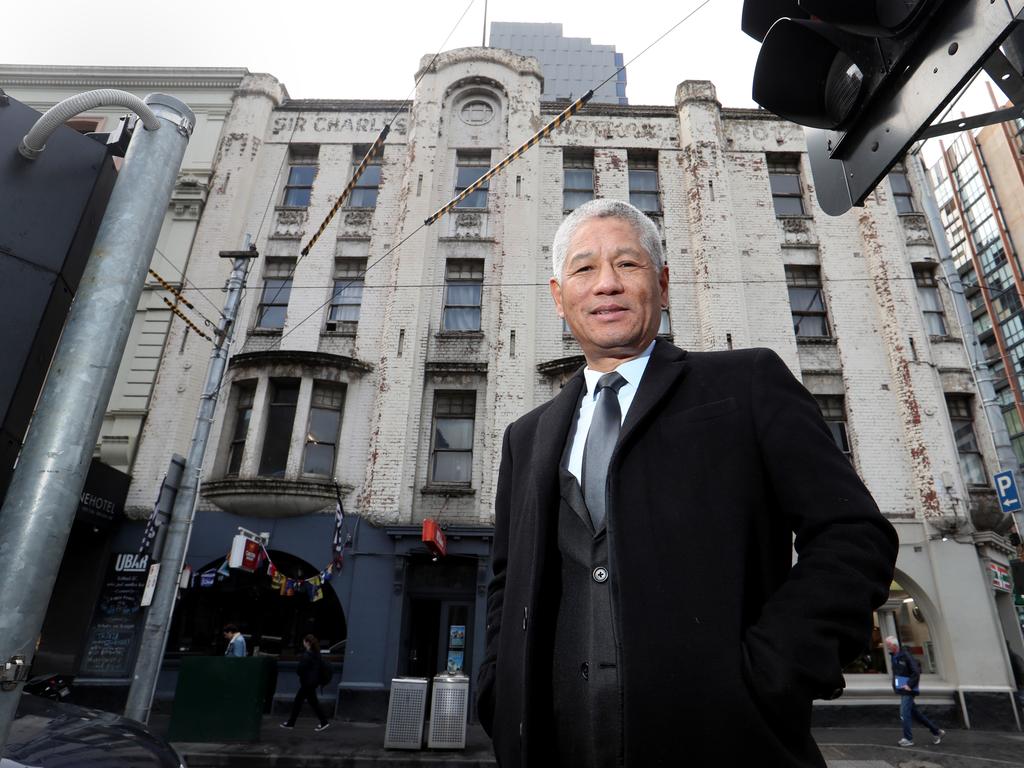Economic hit will cost the nation $4bn a week, says Josh Frydenberg
Australia has avoided nightmare European-style lockdowns, which would have delivered a $120bn hit to GDP in June quarter.

Josh Frydenberg will lay down the platform for unlocking COVID-19 social restrictions, revealing a $4bn hit to economic activity for every extra week they remain in place.
Ahead of the national cabinet moving to relax restrictions on Friday, the Treasurer will deliver a speech declaring “we must get people back into jobs and back into work” to drive economic growth and employment.
Speaking at the National Press Club on Tuesday, Mr Frydenberg will reveal Australia has successfully avoided the nightmare European-style lockdowns, which would have delivered a $120bn blow to GDP in the June quarter.
Under Australia’s restrictions model, where businesses including shops, pubs, restaurants and cafes were closed, Treasury predicted that GDP could fall by 10 to 12 per cent in the June quarter.
Despite avoiding a worst-case scenario, Mr Frydenberg will warn Australians that the COVID-19 economic shock confronting the world “dwarfs the GFC” and “we are by no means out of this crisis”.
“GDP is now expected to fall significantly, with Treasury forecasting a fall in the June quarter the equivalent of around $50bn,” Mr Frydenberg will say.
“These falls in economic activity together with the employment effects of the health restrictions have seen Treasury forecast that the unemployment rate is likely to double.
“Having fallen in February to 5.1 per cent, it is now forecast to reach 10 per cent in the June quarter. Treasury has also forecast that but for the JobKeeper package, it could have risen to 15 per cent.”
Mr Frydenberg will say that rebooting the economy is the crucial next step in the country’s battle with COVID-19, and flag that the country is crossing “the bridge to recovery”.
“For every extra week the current restrictions remain in place, Treasury estimates that we will see close to a $4bn reduction in economic activity from a combination of reduced workforce participation, productivity and consumption,” he will say.
“This is equivalent to what around four million Australians on the median wage would earn in a week. History shows that the longer people are unemployed, the harder it is to get a job.
“In the early 1990s, unemployment increased by 5 per cent over three years, but took seven years to get back to its pre-crisis level. As has been remarked, unemployment went up in the elevator and went down by the stairs.
“In the current coronavirus, it is expected the unemployment rate will go up by around 5 per cent in three months, let alone three years. It underlines the importance of getting people back to work as soon as possible to avoid the long-term economic and social impacts from a high unemployment rate.”
Mr Frydenberg also sets out key principles that will guide the government’s reform agenda to recharge the economy as it emerges from the pandemic, cautioning there will not be a retreat to protectionism.
He will say that “unleashing the power of dynamic, innovative and open markets would be central to the recovery, with the private sector leading job creation, not government”.
“There is a risk that protectionist sentiment re-emerges on the other side of the crisis, and for that we must be vigilant,” Mr Frydenberg will say. “While we must always safeguard our national interest, we must also recognise the great benefits that have accrued to Australia as a trading nation.”
The reforms will target personal responsibility, rewarding effort and encouraging risk-taking while ensuring a safety net underpinned by decency and fairness.
Mr Frydenberg will reveal that when social-distancing restrictions were imposed on March 24, Treasury outlined a scenario — based on eight-week European-style lockdowns — forecasting a hit to GDP of 24 per cent, or $120bn, in the June quarter. “This would have seen enormous stress on our financial system as a result of increased balance sheet impairments, widespread firm closures, higher unemployment and household debt,” he will say. “This was the cliff we were standing on.”
Ahead of delivering an update to parliament next week outlining the economic impacts of coronavirus, Mr Frydenberg will say that, despite successes in Australia’s health response, the nation’s economic indicators are “going to get considerably worse in the period ahead before they get better”.
He will point to Australia’s ability to keep open key sectors, including agriculture, mining and construction, throughout the pandemic due to the country’s ability to suppress the spread of the virus.
“Reassuringly, national cabinet has signalled that, from this Friday, it will assess more opportunities for easing restrictions, building on decisions already taken to date, such as around elective surgery, or in some states, limited gatherings and visitations,” he will say.
New Zealand Prime Minister Jacinda Ardern will join the national cabinet meeting on Tuesday to discuss her government’s handling of the twin health and economic crisis as well as opportunities to restart trans-Tasman travel. The national cabinet will also receive a presentation on COVID-safe workplaces in preparation for businesses reopening and consider the scale of relaxation of restrictions before Friday’s meeting.
Mr Frydenberg will say that as the world pursues a vaccine, “we must also turn our minds to the changes that will be needed to further drive economic growth and employment”.
Since the COVID-19 pandemic was declared, the Morrison government has provided $320bn in direct economic and fiscal support measures to protect jobs and keep businesses open, equating to 16.4 per cent of GDP.
Mr Frydenberg says that without the $130bn JobKeeper program and additional welfare support through JobSeeker, the hit to the national economy would have been much worse.
Using credit card data provided by the banks, Mr Frydenberg will say spending on arts and recreational services, accommodation and food services was down about 60 to 70 per cent. “Despite the toilet paper boom and the record increase in retail trade in March due to panic buying, overall consumption, according to NAB data, has fallen 19.5 per cent since the start of the year, with declines across all jurisdictions,” he will say.








To join the conversation, please log in. Don't have an account? Register
Join the conversation, you are commenting as Logout